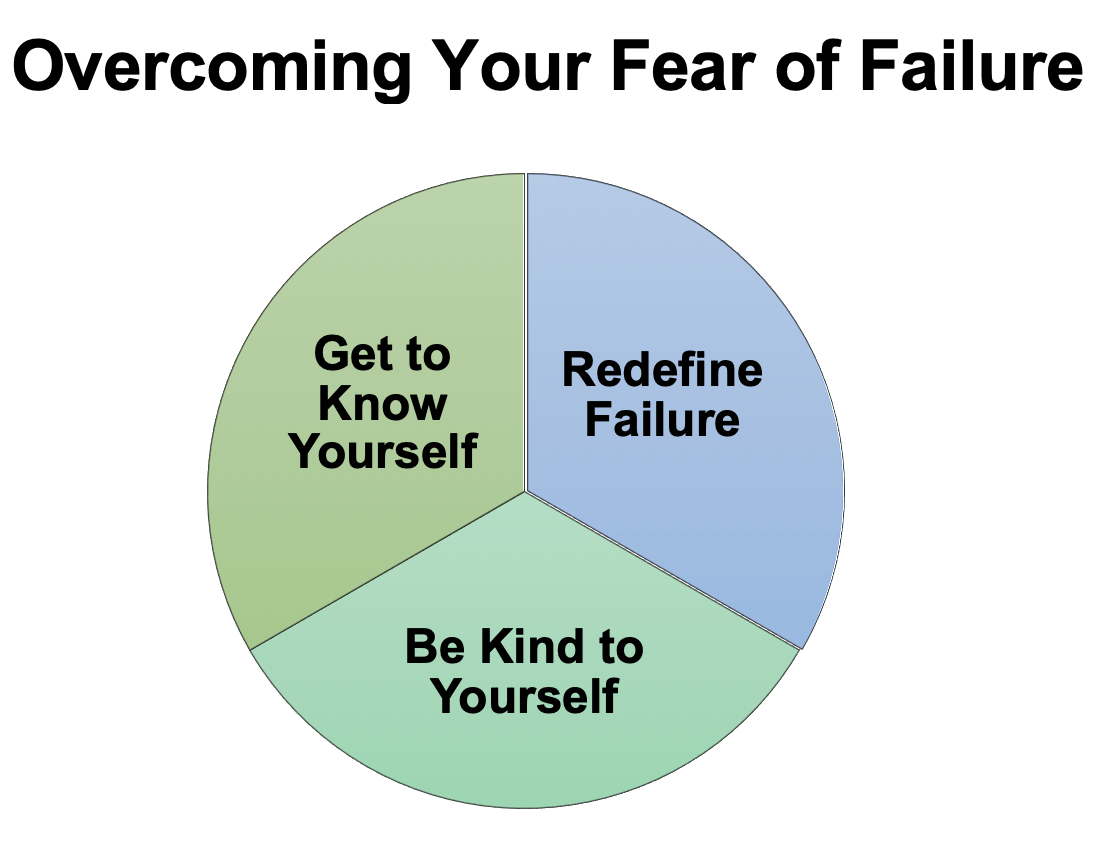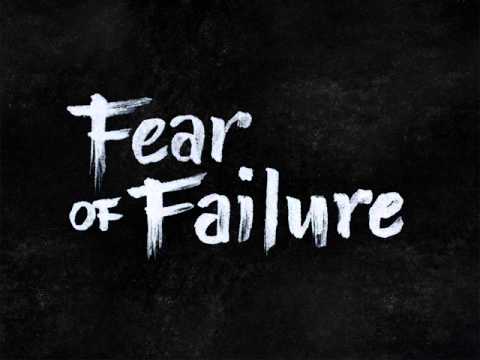What’s the worst thing you can think of? What about spiders, needles, heights, or public speaking? If you’re like most people on this planet, then that list probably includes some form of anxiety. Anxiety is normal and healthy to a certain extent; it just becomes an issue when the person experiences excessive fear or worry associated with a situation. Atychiphobia is an intense fear of failure that leads to avoidance behavior in any activities involving success. It may seem silly at first glance because we all know what failure means – it simply means not succeeding! People who have Atychiphobia feel bad when they do something wrong. It is hard to live their life because they feel so much shame and guilt. This article will talk about Atychiphobia. If you have this, or know someone who does, don’t be afraid to ask for help.
Detailed Meaning Of Atychiphobia

Atychiphobia is an intense fear of failure that leads to avoidance behavior in any activities involving success. It may seem silly at first glance because we all know what failure means – it simply means not succeeding! But for those who have Atychiphobia, it can make life hard. They feel ashamed and guilty when they don’t do something right.
To understand Atychiphobia, we must first break down the definition of “failure”. Failure is defined as not achieving the desired outcome, but this doesn’t always have to be negative. If you didn’t get a good grade on a test, it could be because you didn’t study hard enough. If you studied hard but still did not pass the test, then think of this as a learning experience. In either case, you didn’t achieve the desired outcome, but how you view failure can make all the difference.
Signs That You Have Atychiphobia
Following are the signs that you have Atychiphobia:
- You avoid any activities that have the potential to lead to failure
- You feel intense fear or anxiety when thinking about taking on a new challenge
- You’re always worried about making mistakes and letting others down
- You experience intrusive thoughts about past failures, which leads to feelings of shame and guilt
- Your quality of life is negatively affected by your fear of failure
Causes Of Atychiphobia
Atychiphobia is a type of phobia where you feel fear and panic when your safety and well-being feel threatened. This is because the amygdala sends out signals to scare you in these situations.
The most common causes for Atychiphobia are:
- Genetics – Often a family history of anxiety disorders can cause early childhood trauma that leads to the development of Atychiphobia
- Experiencing a traumatic event – Such as being humiliated in front of others, experiencing a natural disaster, or being in an accident
- Negative thinking patterns – People with Atychiphobia often have distorted thoughts about themselves and their abilities which contribute to their fear of failure.
- Chemical imbalances in the brain: Serotonin and GABA are two types of chemicals in the brain that affect people who have anxiety disorders. If someone has a fear of being touched, they may have a problem with these chemicals in their brain.
What Triggers Atychiphobia?

Many different things can trigger Atychiphobia in people. Some of the most common triggers include:
- Death – The fear of death is a very natural one but some people experience more severe symptoms than others when faced with the possibility of their demise. This could be due to past traumas or feelings which have yet to be resolved.
- Failure – Atychiphobia can develop due to feelings of inadequacy and fear that you’ll face failure in the future. This could stem from past experiences or encounters with negative people who have made you feel inferior. These people need to recognize their worth and understand that they are capable of accomplishing great things.
- Rejection – Rejection can be a very difficult experience for anyone to deal with, but it can be especially hard for someone who is struggling with Atychiphobia. This could stem from being rejected by friends or family members, or even being unsuccessful in job interviews.
- Criticism – Criticism is often seen as a personal attack and can be a difficult thing to deal with. For someone who is struggling with Atychiphobia, this could lead to feelings of self-doubt and anxiety.
Many different things can trigger Atychiphobia in people. It’s important for those affected by the disorder to identify their triggers and work to reduce their exposure to them. This will help lessen the severity of their symptoms.
Diagnosis of Atychiphobia
The diagnosis of Atychiphobia takes place under the guidance of mental health professional through clinical interviews and observations. If you have Atychiphobia, you need to get help right away. Not taking care of this health problem can make it worse. It can cause severe anxiety and depression that can affect your personal life and work.
Treatment Of Atychiphobia

There are many different types of treatment available for Atychiphobia. The most common treatments are:
- Cognitive Behavioral Therapy (CBT) – This is a type of therapy that helps you identify and change the thoughts and behaviors that contribute to your fear of failure.
- Exposure Therapy – This involves gradually exposing yourself to the things that trigger your anxiety and fear, whether it’s failing an exam or public speaking.
- Medication – There are medications available to help with anxiety symptoms such as panic attacks and intrusive thoughts about failure.
What You Can Do To Overcome Atychiphobia?
You can take steps to overcome your fear of failure. These are some steps you could do:
- Educate yourself – Atychiphobia is a real disorder which is when you are afraid of not being successful. It has symptoms like any other type of anxiety. You might not want to do this, but your amygdala might. It sends signals when someone triggers it.
- Challenge negative thoughts – Oftentimes, people with Atychiphobia will have distorted thinking patterns that contribute to their fear of failure. By challenging these thoughts and replacing them with positive ones, you can reduce your anxiety levels.
- Make an effort to socialize more often – Try engaging in conversations instead of staying cooped up in your home. Being around others can help you feel better. You might also want to talk with someone if you are feeling sad.
- Be patient with yourself – Recovery from Atychiphobia is a long process and you need to have patience with yourself during this time. Be kind towards yourself, and remind yourself of how far you’ve come since starting your journey to recovery.
Tips To Prevent Yourself From The Disorder
While there is no surefire way to prevent Atychiphobia from developing, you can take some steps to help reduce your risk of developing the disorder.
- Talk about your feelings – Expressing yourself openly and honestly can help reduce stress levels and make you feel more in control. Bottling up your emotions will only increase your anxiety levels.
- Change your negative thinking – If you’re experiencing bouts of depression, you must seek help immediately. Negative thinking will only contribute to the worsening of Atychiphobia symptoms and can make recovery more difficult.
- Stay away from alcohol use – Alcohol slows down brain activity which contributes to feelings of anxiety and stress when consumed.
- Exercise regularly – Exercise releases endorphins, which have mood-boosting effects and can help reduce anxiety levels.
- Get enough sleep – A lack of sleep can increase stress levels and make you more susceptible to developing anxiety disorders. By getting a good night’s sleep, you’re helping your body to better cope with stressors.
Atychiphobia can be a debilitating disorder that affects your personal and professional life. It is important to get help if you are suffering from the symptoms of this disorder. There are many different types of treatment available, so don’t hesitate to reach out for assistance. Remember to be patient with yourself during your journey to recovery and take things one step at a time. With time and effort, you can overcome your fear of failure.
Helping Someone To Deal with The Disorder
Helping someone cope with Atychiphobia can be challenging. However, there are things that you can do to help them reduce their fear of failure:
- Be supportive – Let the person know that you’re there for them and support whatever decisions they make about seeking treatment. By being a positive influence in their life, you empower the person to fight their fear.
- Educate yourself – Learn about Atychiphobia and understand the different symptoms that come with it. This will help you be a more effective support system for the person.
- Encourage positive thinking – Help the person replace negative thoughts about themselves with positive ones. This can be difficult but is essential in the recovery process.
- Set goals – Help the person set realistic goals and work towards accomplishing them. This provides a sense of accomplishment and can help reduce feelings of self-doubt and inadequacy.
- Be patient – Recovery from Atychiphobia is a long process that takes time and patience. Be supportive throughout this time and give the person a safe space to express themselves.
Keep in mind that Atychiphobia is not something you can simply overcome overnight and it will take time and effort before they recover from their fear of failure. Be patient with them throughout this process, as even though it may be difficult for you, remember that recovery is an important part of their life.
By following these tips, you can be an effective support system for someone coping with Atychiphobia. Remember to be supportive and understanding, and most importantly, be patient. With time and effort, the person will overcome their fear of failure.
Conclusion
Atychiphobia is the fear of failure. It can be debilitating for people who are afraid to make mistakes, and it often makes them believe they will fail before even trying. This blog has discussed how Atychiphobia can affect someone’s life in many ways, including their relationships with others, career goals, or personal commitments. The good news is that there are a few simple things you can do to overcome this fear! I encourage you all to take heed of what was shared here today so that your future does not have to include living with the crippling effects of this mental illness.
If you are looking for affordable Online Counseling MantraCare can help: Book a trial therapy session



